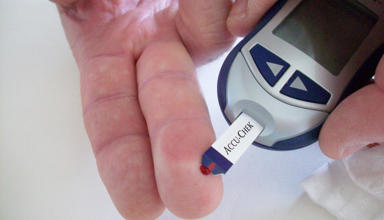The Revised School Nursing Framework for Wales
There is huge potential for school nurses to improve children and young people’s physical, emotional and psychological health; supporting them to achieve to the best of their ability during their school years and to grow up to be as healthy and resilient as possible. This is recognised in the Revised School Nursing Framework for Wales, published by the Welsh Government on 18 May 2017.
The Revised Framework is ambitious. It sets out a range of health issues school nurses can help to address from physical health to emotional health and wider social needs. The role of the Specialist Community Public Health School Nurse (SCPHN) includes:
- weighing and measuring children in primary schools (see Guidelines for Implementing Child Measurement Programme for Wales);
- giving vaccinations at certain ages (see Immunisation Standards for School Age Children in Wales); and
- early identification of safeguarding and wellbeing issues (see All Wales Safeguarding Standards for NHS School Nursing Services).
The Revised Framework makes clear that school nurses should have a strong focus on prevention; working closely with teachers to help deliver lessons on things that can affect children’s health like dental and hand hygiene in avoiding illness, smoking, alcohol, substance abuse, health eating, and sex and relationships education.
The Revised Framework also recognises the important role that school nurses can play in providing students with a base understanding of how to have, or develop, a healthy mind-frame so that, regardless of their social, cultural or economic background, they are guaranteed to have an opportunity to develop healthy ways of thinking (Young Minds). It makes reference to the All Wales Standards for NHS School Nurses for the Promotion of Emotional Wellbeing and Supporting the Mental Health Needs of School Age Children. This document sets standards for NHS School Nurses across Wales to ensure they are competent in supporting the emotional wellbeing and mental health of children and young people attending educational establishments.
For that, the Revised Framework has been broadly welcomed. It states that:
“Children and young people, teachers and school nurses all recognise the increase in mental health related issues in schools and would welcome more input in relation to proactive and reactive support to include dealing with depression, bullying, anxiety and addictions”.
It is fair to say, that much of the Revised Framework is the same in that local Health Boards deploy school nurses in teams to support the health of school-aged children in their locality on a year round basis. Each secondary school in Wales will continue to have a named school nurse. However, the Revised Framework also aims to proactively build on the current school nursing service and extend good practice to all school age children and young people in Wales. It states:
“In this revised document the expectation is reiterated and extended to ensure that every mainstream secondary school and its cluster of partner primary schools will have a unique named SCPHN (SN) school nurse who is employed by the NHS on an all year basis”.
What this should mean in practice, is that every child in Wales will now have a dedicated school nurse throughout their time at school. The document clarifies the core role of the school nursing service, based on the Healthy Child Wales Programme categories of Universal, Enhanced and Intensive service provision. 
While the Revised Framework does make clear that school nurses will provide additional support and/or signposting to local or specialist services for children and young people who are identified as having additional needs, some stakeholders may be disappointed that the Revised Framework does not specifically reference the Welsh Government’s recently published statutory guidance ‘Supporting learners with healthcare needs’.
Most notably however, the challenge for the Welsh Government will be demonstrating that its strategic vision is reflected in practice. The Welsh Government will want to avoid previous criticism from the Royal College of Nursing who highlighted that, “despite some investment, with competing priorities and increase in issues such as safeguarding, the school nursing workforce has been overstretched preventing them from being able to undertake health promoting activities”. The Welsh Government’s own research has show that there is consensus from children and young people, school nurses and teachers that the lack of school nursing time available to spend in school was previously a barrier to improving the service and gaining the trust of children and young people.
In England, two recent reports (Royal College of Nursing, and Children’s Commissioner for England) have raised concerns about the decline in school nurses and the increasing challenges they face: The Best Start: The Future of Children’s Health (May 2017) and Lightening Review: School Nurses (September 2016). The Cabinet Secretary for Health, Well-being and Sport will be hoping that the Revised Framework alleviates any similar concerns stakeholders may have in Wales.
Plenary
When making his statement in plenary on 6 June 2017, the Cabinet Secretary for Health, Well-being and Sport may well be challenged to provide more accurate data on the number of nurses working with schools and the proportion of those with the relevant school nurse qualification (the most recently published statistics show that as of 30 September 2016 there were 233 WTE nurses working in mainstream schools in Wales). He may also be asked about the monitoring arrangements that will be developed to provide a reporting mechanism on the effective provision of school nursing services across Health Boards in Wales.
He will undoubtedly recognise the positive contribution of school nurses to improving the health and well-being of school aged children and young people in Wales.
Article by Sarah Hatherley, National Assembly for Wales Research Service
This post is also available as a print-friendly PDF: How do we support the development of strong, healthy and resilient children and young people? The Welsh Government’s vision for an effective school nursing service in Wales. (PDF, 189KB)




